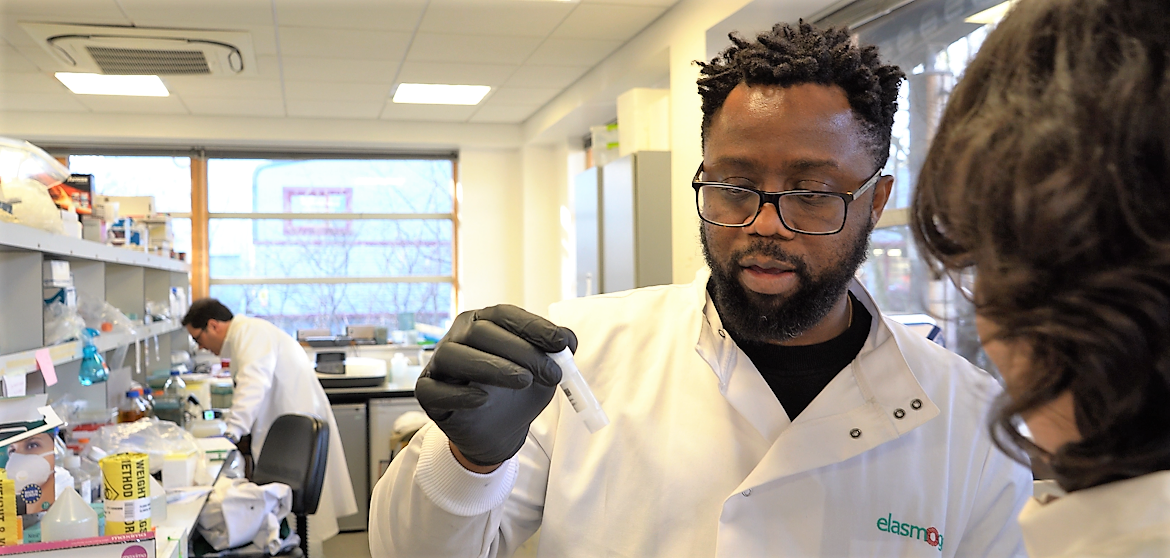Grant funding of over £686,000 has supported Elasmogen in testing the efficacy of soloMERs in treating conditions like inflammation, autoimmune diseases, and cancer.
“Antibodies are phenomenal molecules keeping us healthy. But clinically they can be limited,” explains Dr Caroline Barelle, CEO and co-founder of Elasmogen. “Relatively speaking, human antibodies are large and complex. They are good anywhere there is blood but are less effective where there is a barrier, like a solid tumour. If they were smaller, you could get deeper into the tissue and be more effective.”
Elasmogen found the answer in nature. The Scottish biopharmaceutical company span-out from the University of Aberdeen on the back of research that discovered smaller, more stable antibody-like proteins in the immune system of cartilaginous fish, such as sharks and rays. Ethically harvested from dogfish, the team went on to biologically manufacture these proteins to create soloMERs – a ‘humanised’ version that has the greatest chance of reaching the clinic. Caroline says, “We found something that acts like an antibody and looks like an antibody but is smaller, more flexible and robust so you can link them together to hit more than one disease target thereby making them more clinically effective.”

Thanks to £686,000 worth of grant funding from Innovate UK through the Biomedical Catalyst (BMC), Elasmogen has been able to test the efficacy of soloMERs in treating conditions like inflammation, autoimmune diseases, and cancer. The BMC funding enabled the team to assess the efficacy of their soloMERs in ocular disease which resulted in a huge amount of translational data about the properties of these more effective, more reliable, and faster-acting proteins.
The project funded by the BMC worked beautifully and we learned a lot about soloMERS. We managed to reformat them to optimise the drug design. The research delivered robust data that was published in high impact journals. Critically we also learned that tackling ocular disease was the wrong approach for these particular soloMERs as it wasn’t commercially viable from a health economics perspective. So we pivoted and are now developing these soloMERs for other inflammatory disease indications, such as irritable bowel disease.
– Dr Caroline Barelle, CEO and co-founder of Elasmogen
The trial and review added huge value to the company and boosted investor confidence in the science. So much so that the data generated from the grant contributed to a further £8m investment in 2022, in a round led by BGF and the Scottish National Investment Bank. The company is forging commercial partnerships with Pharma companies such as Almac Discovery and continues to build its pipeline of novel drugs.
The grant and subsequent investment has helped the company grow significantly in size and skills. A recent Innovate UK Future Leaders Fellowship award has also allowed one of its original team members to build his own leadership skills and go on to employ a team of his own so he can further their work and make new connections across the industry.
Caroline reflects, “The BMC was a seed for growth, there’s no question about that. The funding and support we received has flourished within the company and is now helping strengthen all aspects of the company – investment, innovation, product development, pipeline expansion and now, importantly, people development.”

